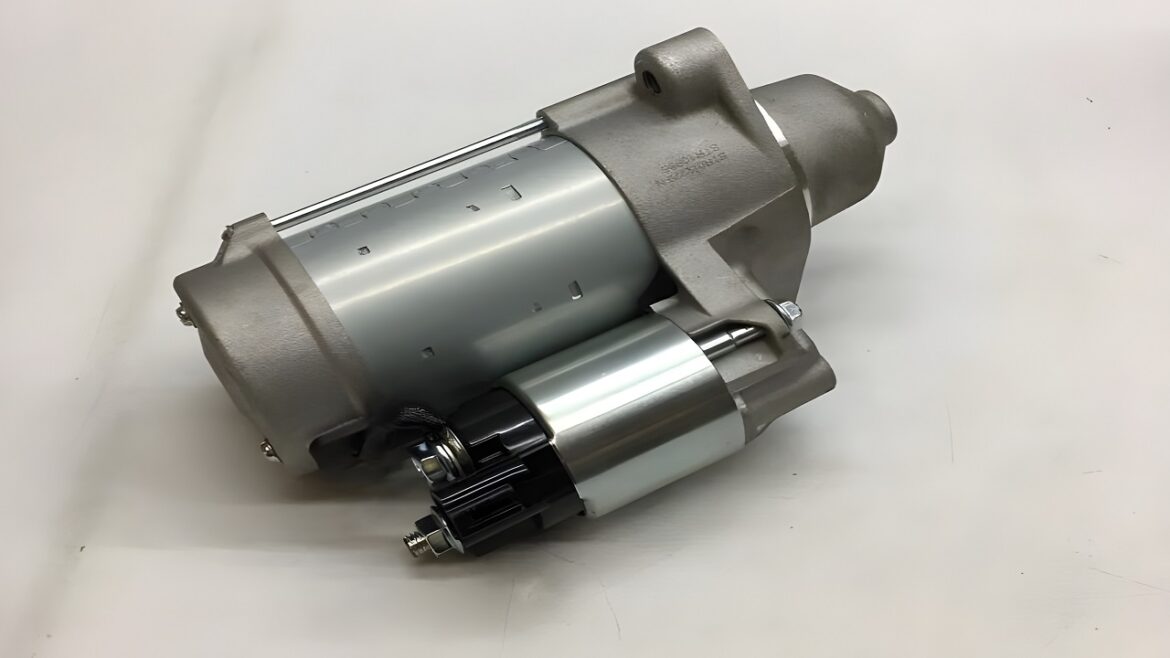The starter motor is one of a car’s most important but often overlooked parts. These small gadgets are essential to getting our vehicles started. When the key is turned, the starter motor turns the engine’s crankshaft to spark combustion. But not every starter motor is the same. They are available in a wide range of voltages and power outputs to meet the needs of a wide variety of engines. Let’s look at the world of automobile starter motors and the power and voltage they require to function. To know more about which A-Premium starter is best for your motor, check the link.
The motor’s power ratings indicate the ability of a starter motor to turn the crankshaft of an engine. Commonly used to quantify such power is the kilowatt (kW). The starting power of an engine is directly related to the starter motor’s ability to overcome compression resistance.
Low Power for Compact Engines
Starter motors need not be as powerful for smaller engines, such as those in compact cars and sedans. These motors have less compression and thus require less energy to get turning. Vehicles with smaller engines typically have starter motors with power ratings between 0.9KW and 1.2KW.
High Power for Large Engines
More powerful starter motors are typically needed for engines with a greater displacement or more cylinders. This is due to the increased resistance when trying to overcome the engine’s higher compression and begin operation. Starter motors with higher power ratings, typically between 1.4 and 2.0 kilowatts, are typically required for the engines found in trucks, SUVs, and heavy-duty vehicles.
Voltage Options
Starter motors are available in various voltages, with 12V being the industry standard. In this context, “voltage” means the electrical potential the starter motor uses to produce the force needed to crank the engine.
12V Starter Motors
Most modern automobiles have 12V starter motors. The 12V systems typically found in cars are compatible with these motors. Because of their dependability and accessibility, they can be used in various motors.
24V Starter Motors
There are 24V electrical systems in some semis and commercial trucks. These automobiles typically have more powerful engines that necessitate greater starting force. Because of the extra power requirements of these engines, 24V starter motors were developed.
How to Determine Which Starter Motor Is Best
For consistent engine starts, picking a starter motor with the right power rating and voltage for your vehicle is crucial. It’s best to stick to the guidelines provided by the maker of your particular model. A more robust starter motor may be required after performing engine upgrades or performance modifications on your vehicle.
Think About What Your Car Needs
Consider your car’s engine size and type when shopping for a starter motor. A starter motor with a higher power rating can provide easier and more reliable starts if you have a larger engine or intend to install performance modifications.
Quality Matters
Never sacrifice quality for efficiency, no matter the power rating or voltage. Investing in a high-quality starter motor made by a reputable brand is best. Low-cost alternatives could initially be enticing but might not hold up to regular use.
Final Thoughts
Starter motors can be found in a wide range of horsepower ratings and voltage configurations to meet the needs of various engines and vehicles. What matters most for starting the engine is the motor’s power rating, while the voltage indicates the potential of the electrical system. Your vehicle’s smooth and dependable starting depends on selecting the optimal power and voltage levels. If you want your vehicle to perform well and last long, you should always check the manual and consider buying a high-quality starter motor.
